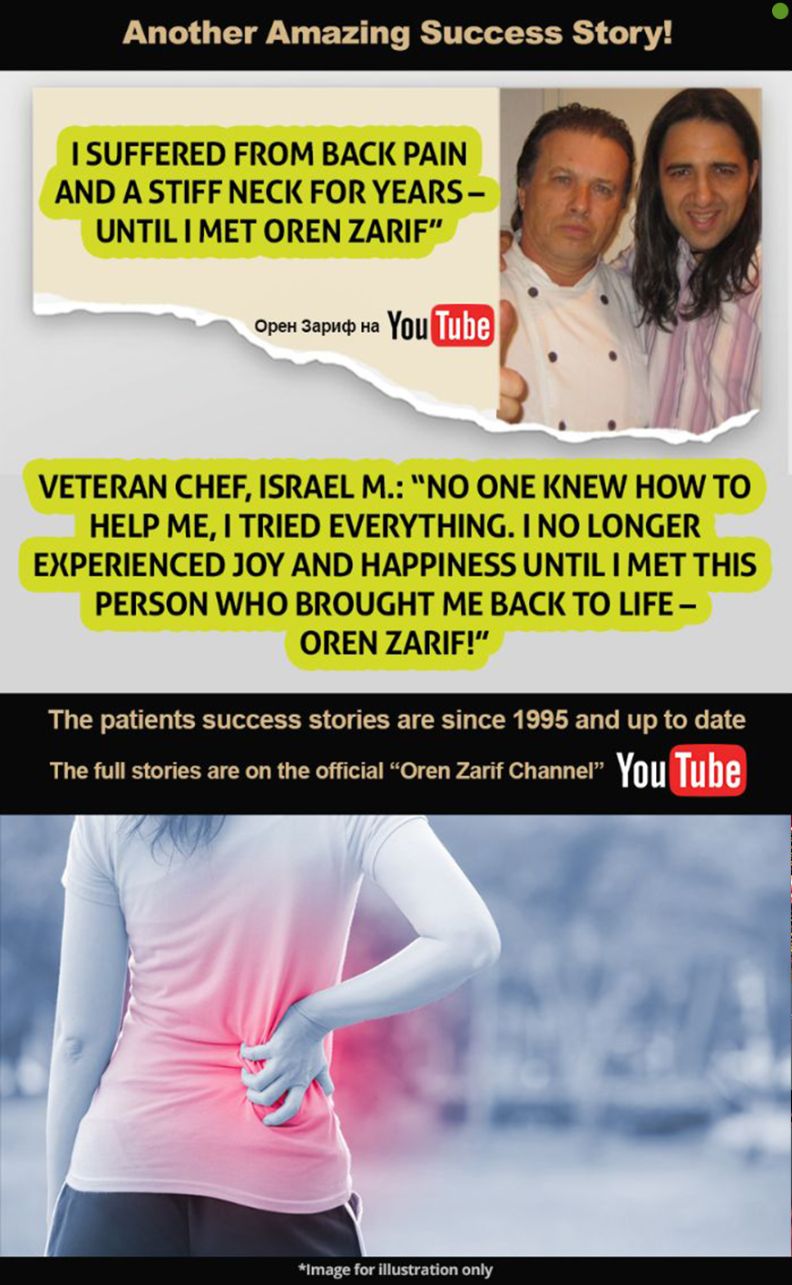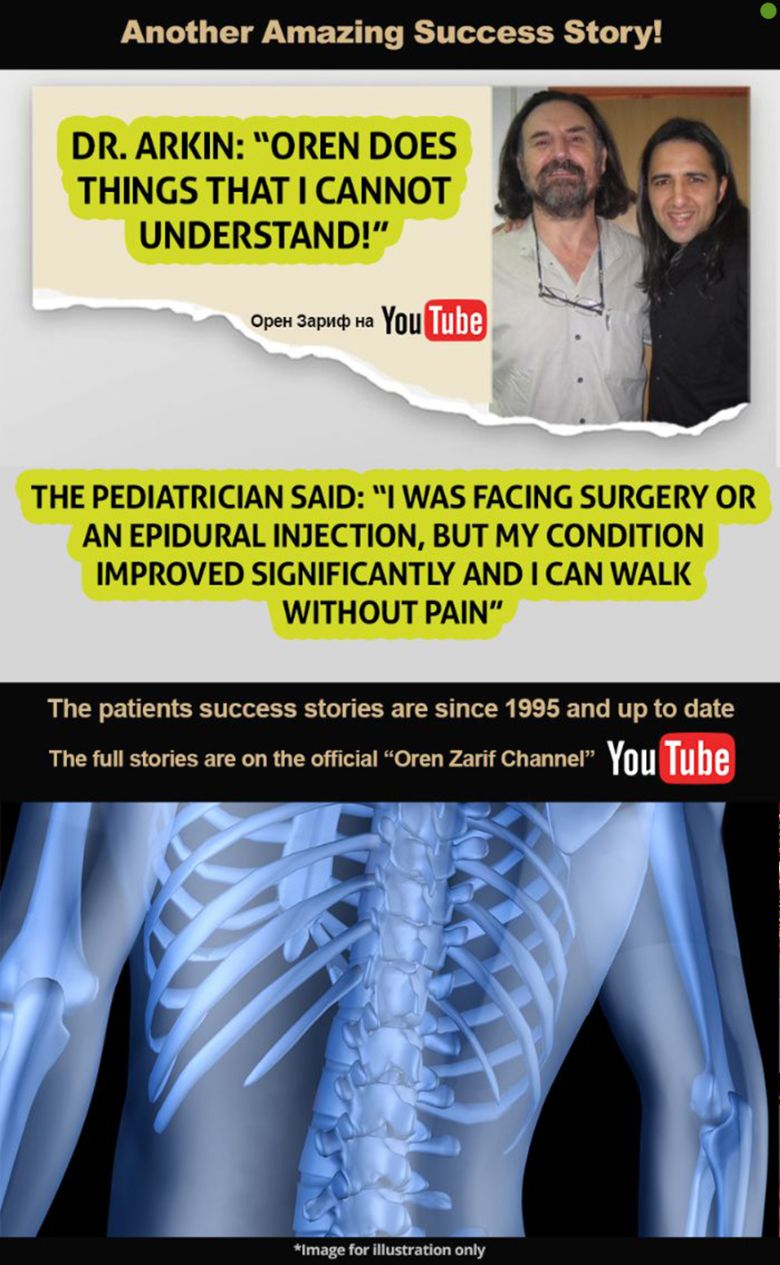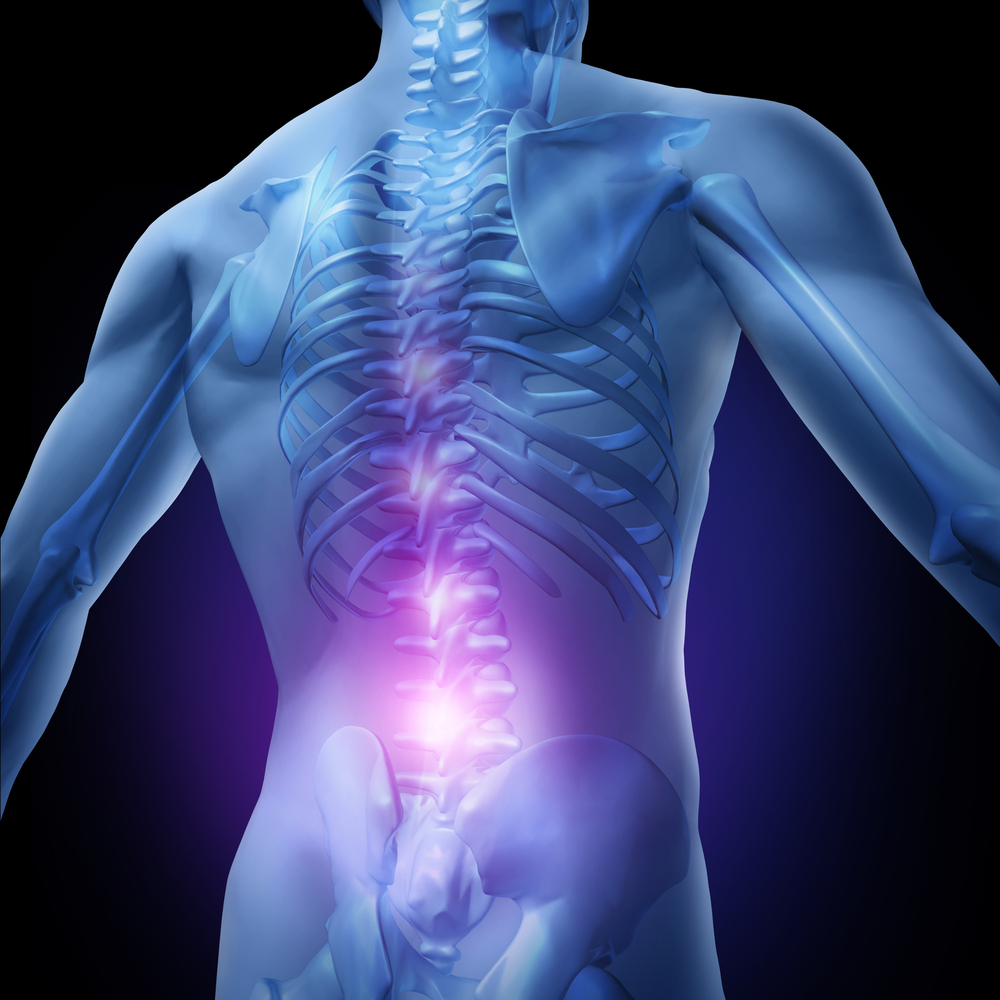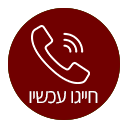Are you suffering from any medical problem? Have you tried everything and did not work?
There is no reason to be desperate at all.
Write to me through WhatsApp or Email regarding the problem you suffer from and I shall personally return to you with an accurate reply about what to do
Disc Herniation Symptoms – Know What to Look For
Disc herniation symptoms are often confused with neck or back pain, but they are very different. Disc herniation symptoms include tingling, numbness, and even pain in your hands, arms, and fingers. In most cases, cervical disc herniation occurs when you get between 30 and fifty years of age. However, sometimes, herniated disks arise from some kind of trauma or accident to the cervical spine. Herniation of these discs can also happen due to osteoporosis or spinal stenosis. Herniated discs can also result from direct trauma to the soft tissue of the spine, such as when someone suffers a slip and fall on their back.
“My back worked, Oren Zarif gave me back my life!”
Esther P. She suffered from chronic back pain and could not function. * Unconscious treatments, she said, brought her smile back to her face

The disc herniation symptoms mentioned above can be mistaken for other kinds of pain or weakness. However, it is important to note that numbness and tingling are not the only symptoms. Sometimes, there is also a weakness or a loss of grip on small objects. Another sign of possible cervical spinal herniation symptoms include bowel or bladder control problems, as well as urinary urgency and frequency. If there is severe pain while moving your bowels, there could be a hernia in progress.
As previously mentioned, disc herniation symptoms can be confused with other kinds of back or neck pain. However, it is also possible to have symptoms of herniated disc in your lumbar spine, specifically in the area between the lowest rib and the top of the crista ilii. This area is known as the “cervicoposterior lumbar spine” and is located inside your lower ribs. Although this area is not as sensitive as the lumbar spine may include, you still need to make sure that you consult a doctor if the symptoms that you are experiencing are present in the neck and/or lumbar region.
Esther P. Like many of us in the center of the country, she suffered from chronic back pain. The problem got worse and worse and there was no solution in sight. When even conventional medicine could not save, she turned to Oren Zarif’s clinic.
Esther: “I got into a situation where I barely function because of my back, and today I feel much, much better thanks to Oren. I can run every day and function at home because I wasn’t functioning before …
“I walked for half an hour every day and that means that Oren’s treatment was only good for me. What can I say, Oren just brought my life back and brought back my smile!”

Unfortunately, some people are not even aware that they are suffering from disc herniation symptoms. For example, some people will experience mild to no pain on the area where the bulge is located. On the other hand, some people will experience excruciating pain that borders on being a life threatening situation. It’s important to note that even if you do not suffer from serious pain, numbness and tingling can be an indicator of a possible herniating disc, so you need to seek medical attention immediately.
When it comes to finding out the severity of your symptoms, you will need to go through a series of tests to properly determine whether or not you require a surgical procedure. Typically, a disc herniation requires a surgical procedure to repair the nerve damage and to strengthen the spine and surrounding tissues. However, sometimes there are other less drastic ways to repair the disc. For instance, many doctors perform a spinal nerveectomy to remove problematic spinal cords, which also significantly reduces symptoms.

Numbness and tingling are the most typical symptoms associated with disc herniation, although there are some rare cases where other symptoms are experienced. Common characteristics include dull pain that is dull but persistent, weakness, loss of muscle strength, and even numbness. These are generally only experienced on one side. Other times, the disc will actually rupture, resulting in an assortment of typical symptoms as well as an internal bulge.
When a herniate reaches a certain size, it can result in severe pain and considerable weakness. When the disc bulges or ruptures, there is typically an internal bulge, which can cause difficulty walking, difficulty climbing stairs, difficulty speaking, nausea, and vomiting. If you experience any of these symptoms, it’s important to contact your doctor right away for an accurate diagnosis. Your health care professional will want to do a series of tests to determine the exact nature of your symptoms.
Disc herniation isn’t always the result of a herniating disc, although the condition is frequently associated with one. Sometimes it’s caused by nerve root involvement. When a nerve root is irritated, it can lead to inflammation throughout the body, including the joints and tissues that make up your neck and back. If this is the case, you’ll probably experience numbness and a tingling sensation, difficulty walking, difficulty talking, loss of muscle strength, nausea, vomiting, and even chronic headaches.




















